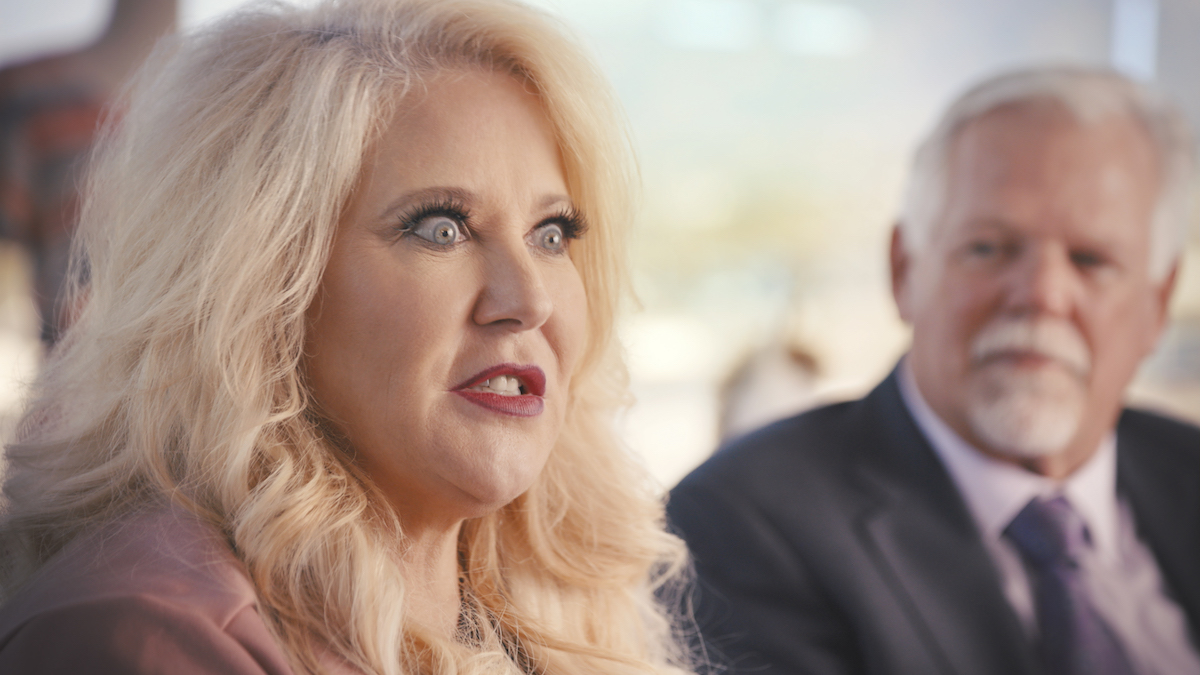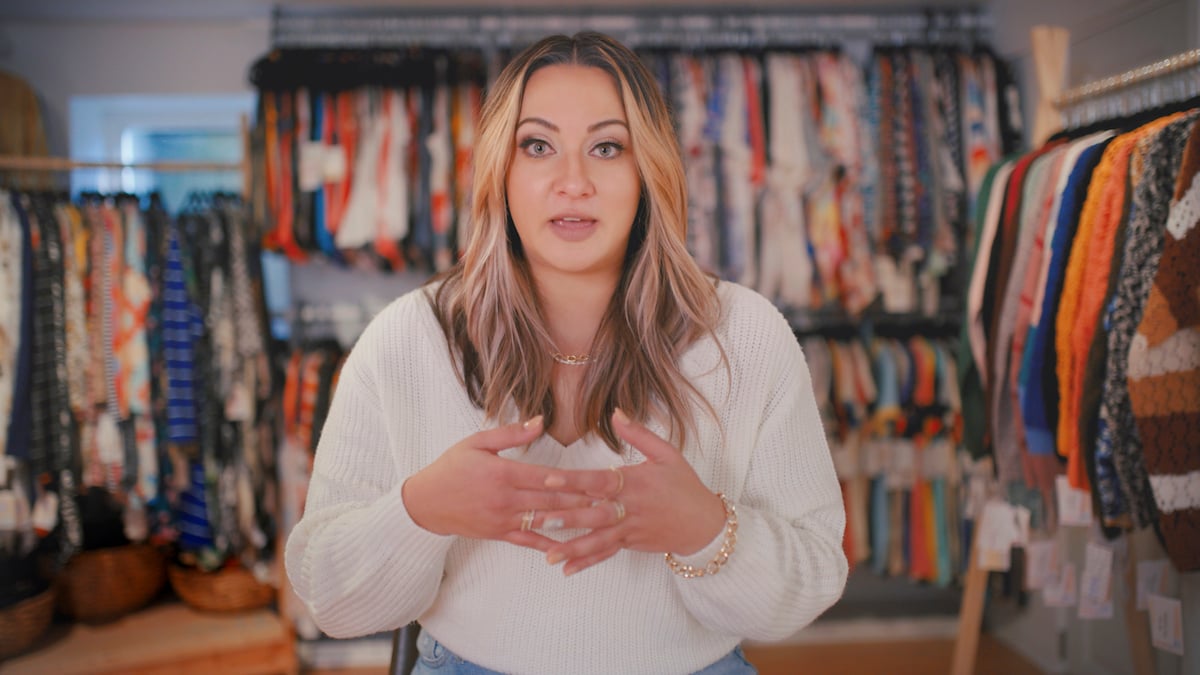
‘LuLaRich’ Review: Amazon’s New Docuseries Explores the Dark Side of LuLaRoe
Pyramid scheme or legitimate business opportunity? That’s just one of the big questions at the heart of LuLaRich, the new four-part docuseries about the spectacular rise and fall of cult-like multi-level marketing company LuLaRoe. (It’s streaming on Amazon Prime Video beginning September 10.) Through interviews with the company’s founders, ex-employees, disgruntled former consultants, and others, the series explores how a company that sold garishly patterned leggings to suburban moms took the world by storm, and ultimately went off the rails.
‘Fyre Fraud’ directors explore controversial leggings empire in ‘LuLaRich’
LuLaRich directors Jenner Furst and Julia Willoughby Nason were also behind the 2019 Hulu documentary Fyre Fraud, about con man Billy McFarland’s ill-fated Bahamas music festival. Like that movie, their latest effort tackles another well-known “dumpster fire” (in their words). This time, the subject is an MLM founded by a pair of married Mormon entrepreneurs that critics say preyed upon many women’s desire to balance a fulfilling career with motherhood.
In exchange for an initial investment of $5,000, LuLaRoe promised its consultants they could become successful, independent business owners. After all, the company’s signature “buttery-soft” leggings would basically sell themselves. In reality, the riches mostly flowed to the company’s owners and the top consultants. (The latter were those lucky enough to sign on when LuLa Roe first took off). As more and more consultants signed on, making sales became increasingly difficult. The problems multiplied when the quality of the garments dipped, with many retailers reporting that they’d received boxes of moldy, stinky leggings that were difficult to return. The company grew at breakneck speed for a few years before starting to collapse under its own weight, though it is still in business today.
LuLaRoe’s founders defend themselves in ‘LuLuRich’

LuLaRich is hardly the first critical look at LuLaRoe. Buzzfeed, Bloomberg, and Vice have all covered the company and its questionable business practices. (The latter’s 30-minute documentary from 2019 features interviews with many of the same subjects featured in LuLaRich.) But Furst and Nason scored a coup when they persuaded LuLaRoe founders DeAnne Stidham and her husband Mark Stidham to sit down for an on-camera interview at LuLaRoe’s corporate offices in Corona, California.
The Stidmans are unapologetic about the way they chose to run their business. While their comments are often self-serving and tone-deaf, they are nonetheless revealing. In her interview segments, the bubbly, faux-naive DeAnne preaches a superficial message of female empowerment. At the same time, she frequently defers to her husband. “Women can be strong,” DeAnne says. “But there’s a time to let him be your hero.” The way LuLaRoe’s corporate culture reinforced a traditional patriarchal family structure is one of many aspects of the company that comes in for criticism in the series.
The couple’s chipper story of success stands in contrast to those whose experience with the LuLaRoe ended in disillusionment or disaster. One top consultant claims she once earned as much as $51,000 in monthly bonuses. But she eventually ended up bankrupt and divorced after the company changed its compensation structure in 2017. It’s also juxtaposed with footage taken from their depositions in a lawsuit filed by Washington state alleging the company was an illegal pyramid scheme. In those clips, DeAnne and Mark both adopt a considerably less friendly posture when questioned about their business. (The company agreed to pay $4.75 million to settle that lawsuit earlier in 2021.)
Understanding the appeal of LuLaRoe

LuLaRich is at its best when it looks at the reasons why so many women fell for LuLaRoe’s sales pitch. You might not like the Stidhams’ approach to running their company. But they were undoubtedly smart about capitalizing on an underserved market — moms looking for fun, functional, and comfortable clothing.
Nor is it surprising that LuLaRoe’s promises of being able to run a successful business while staying home with their kids also resonated with many women. The idea of “full-time income for part-time work” was an enticing one, as several interviewees attest to.
“If you want to create incredible wealth, identify an underutilized resource … there is an underutilized resource of stay-at-home moms. And they have chosen to be a mother. But if you make that choice, you pay a price career-wise in our country right now,” Mark Stidham explains.
There’s a serious critique embedded in LuLaRich. However, it’s sometimes overshadowed by a focus on the bizarre moments that characterize a company spinning out of control. The series lingers on over-the-top events featuring stars like Mario Lopez (chosen, as one former employee explains, because he would appeal to the elder millennial demographic the company targeted) and snark-worthy design fails, like a pair of leggings featuring an awkwardly-placed bee at the crotch. Was there any point in including one jaded former employee’s assertion that he’ll never listen to his one-time fave Kelly Clarkson after she performed during the annual LuLaRoe cruise? Another ex-employee’s ill-fated venture into a marijuana-growing business is also awkwardly shoehorned in, presumably for the WTF factor.
A more tightly focused documentary, rather than a four-episode series, might have better told the story of LuLaRoe. Still, LuLaRich is compelling viewing for anyone interested in stories of scams and the dark side of girl boss culture.


